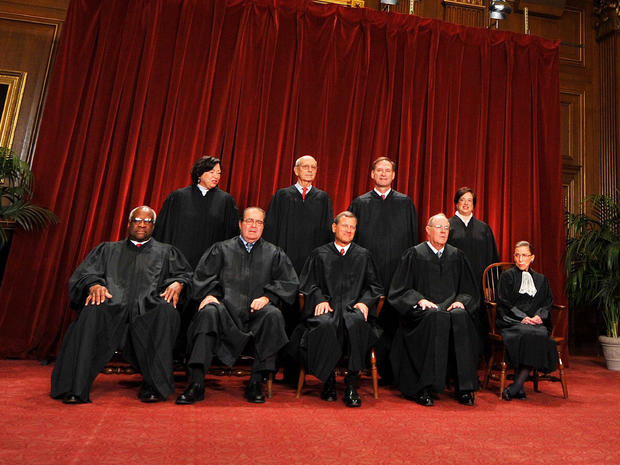Supreme Court rejects vaccine lawsuit
The Supreme Court today gave vaccine manufacturers greater protection from lawsuits by parents who say vaccinations harmed their children, ruling that Congress had blocked those types of claims against drug makers.
In a 6-2 decision, the justices said Congress had effectively shut the courthouse door to these lawsuits in 1986, when it created a special vaccine court designed to compensate victims of vaccine injuries.
The decision immediately was hailed by the American Academy of Pediatrics, which said it would safeguard the nation's vaccine supply by protecting vaccine makers from potentially crippling legal liability--which could have driven manufacturers out of the vaccine market.
"Childhood vaccines are among the greatest medical breakthroughs of the last century," said the organization's president, Dr. O. Marion Burton. "Today's Supreme Court decision protects children by strengthening our national immunization system and ensuring that vaccines will continue to prevent the spread of infectious diseases in this country."
But it was a crushing defeat for the parents of Hannah Bruesewitz, who have waged a years-long legal battle after their daughter suffered a series of seizures when she got a routine DPT vaccination at her 6-month checkup.
The seizures caused Hannah severe brain damage. Today, 19 years later, her vocabulary is that of a toddler.
With Hannah facing a lifetime of constant care, the Bruesewitz's first filed a claim for compensation in the special vaccine court, under the Vaccine Injury Compensation Program. Congress, concerned that runaway jury verdicts would drive vaccine makers out of the market, created that program for families whose children suffer adverse reactions from vaccines.
When their claim was denied, they sued Wyeth, the vaccine manufacturer, arguing the DPT vaccination was defectively designed and that the company could have provided a safer vaccine.
"Someone has to be responsible for this," Robie Bruesewitz, Hannah's mother, said when the Court took up their case.
But courts ruled against them, holding that vaccine compensation program was the sole way to handle those types of lawsuits against vaccine manufacturers. And today, the Supreme Court agreed.
In a decision by Justice Antonin Scalia, the Court said the special compensation program preempts lawsuits like the one filed by the Bruesewitz's, which allege vaccines were defectively designed. The program was designed to get those cases out of the courts--making it easier for parents to be compensated, while also protecting drug makers from outsized jury verdicts.
"Vaccine manufacturers fund from their sales an informal, efficient compensation program for vaccine injuries," Scalia said. "In exchange they avoid costly tort litigation and the occasional disproportionate jury verdict."
Justice Sonia Sotomayor, joined by Justice Ruth Bader Ginsburg, dissented. Justice Elena Kagan did not participate in the case because she worked on it before she joined the Court.
The vaccine protocol Hannah received injured 65 other children. In 1998, it was removed from the market.
But that was too late for Hannah.
"We should have been taking our daughter to college this fall," her mother told CBS News last October. "If she would have been a normally, typically developing child, she'd be going to college."

